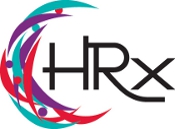 |
Examining |
January 2006
Call Arlene For:
- an effective easy-to-use custom performance tool to help you provide job-specific feedback
- management training on effective accountability
- detailed coaching on how to reach certain employees
- training on giving performance feedback and conducting performance appraisals
- a review of your policies on corrective action and rules of conduct
- HRxpress(TM) hotline services for you and your managers
- “just right” Human Resource support for your organization
If you’re not
having fun
with your
human resources,
call Arlene today
at 952-996-0975
POOR PERFORMANCE PATTERNS

Who in your organization is responsible for holding employees accountable?
It sounds like a funny question, but sometimes I think it’s one of the last things managers seem to do. Perhaps if we actually wrote on a manager’s job description “hold employees accountable for achieving results” or wrote “is accountable for getting company-specified results” on an employee’s job description, then perhaps we’d avoid the old line “it’s not my job.”
One of the most common questions I receive from clients is what to do about a non-performing employee. Of course, by the time the client calls, the employee is frequently over-the-top in non-performance. How does this happen? It seems to jump out of nowhere.
Well…no. It really doesn’t jump out of nowhere. But you knew that. Typically, we as managers ignore the first blip of non-performance. We frequently assume it’s part of the employee’s learning curve. Then something else occurs and it’s not really related to the first problem, so we let it slide. Then a third issue arises that we might address with the person, but it doesn’t really get fixed. Then, the first problem raises its ugly head another time and we start to take note that a pattern may be forming. But we wait a little longer to see whether it’s a serious pattern or perhaps we’re just watching too closely…
Does this sound familiar? What’s a manager to do?
Copyright (c) 2006 Arlene Vernon, HRx, Inc.
TAKE IMMEDIATE ACTION
Our job is to hold our employees accountablefor all aspects of their job performance — even the minor issues. The longer we wait to let our employees know there’s a problem, the larger the problem grows when we finally address it.
How many incidents of tardiness until it becomes a problem? How many times can an employee be rude to a coworker before you intervene? How much time can an employee spend on the phone with personal calls or surfing the net before you think it’s affecting their work?
Accountability is a “now” thing or it’s a nothing. The less you explain to your employees what is expected of them, the more they think it’s okay to stretch (or break) the rules.
One of my favorite examples is a client who had an employee who was regularly tardy. The client kept coming to work earlier and earlier each morning to role model the expected behavior for when the employee should arrive at work. Obviously, since the employee was late, she never got the non-verbal message that arriving early was the expectation.
Be direct. Be timely. Be specific. Be honestAddress the problem with an employee’s performance as it occurs – don’t wait. It’s a lot easier to address a simple issue immediately, then to store up a multitude of issues and try to communicate them all at once.
Set the stage for accountability. When you hire a new employee, let them know that your style is to give feedback as it occurs. Tell them that the objective of this feedback is positive. Since you want your employees to succeed in the job, you’re going to let them know how to accomplish this. If they’re lacking in a skill or in job knowledge, you’re going to point out the problem area and help them solve it. If they’re arriving to work 15 minutes late, you’re going to communicate your expectation and let them know how it impacts customers and coworkers. If they understand what you’re holding them accountable for and the reasons for the directives, the experience will be more positive for all.
Of course, there’s always that employee who really doesn’t share your work objectives and expectations. That takes us back to my May 2005 article: Fire Fast – Hire Slow. If the person truly lacks commitment, doesn’t have the capability or interest to succeed, or their personality (a.k.a. attitude) doesn’t fit your culture, all the coaching in the world isn’t going to turn this person around. It may be time to take the definitive action of accountability – letting the employee go.
Rate your selfon a scale of 1 (low) to 10 (high) on how effectively you hold your people accountable for the level of performance you expect. Then take immediate action and watch how you can increase your accountability factor and your success as a manager.
Copyright © 2005 Arlene Vernon, HRx, Inc.
About Arlene Vernon
Arlene Vernon, PHR, partners with small businesses as their Human Resource Xpert to create their HR systems and solve their HR problems.
If you have gaps in your HR operation, have an employee problem to solve, or want to enhance your managers’ skills, call Arlene today. Learn
how HRx can save you time and help you avoid costly HR mistakes. HRx, Inc., 574 Prairie Center Drive #135/285, Eden Prairie, MN 55344, 952-996-0975,
www.HRxcellence.com.
Subscriber Info
HRx, Inc. respects your privacy and does not give out or sell subscriber names and/or e-mail addresses. Feel free to pass this newsletter to your friends and colleagues as long as the entire newsletter is kept intact. If this newsletter has been forwarded to you, please
sign upto receive your own copy. If you wish to be taken off this list simply
send an email
Share This Article
This article is available for your use or reprinting in web sites or company communications with the agreement that Arlene’s biographical information above and a link to her website is included with the article.
